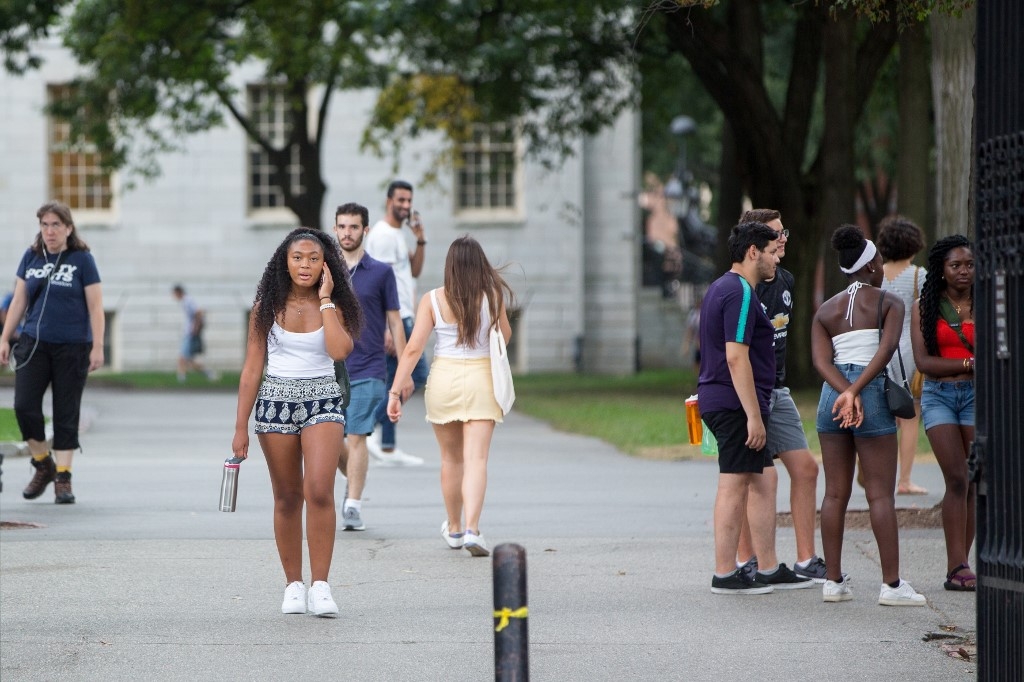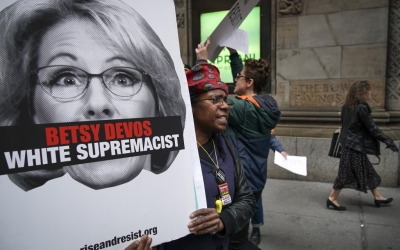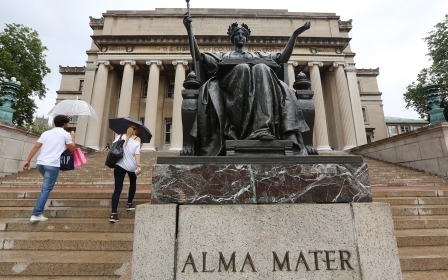Harvard and Yale 'failed' to disclose millions in donations from Gulf states, China

The US Department of Education has opened an investigation into two Ivy League schools after it uncovered as much as $6bn in unreported foreign gifts to American universities from countries including Saudi Arabia, the United Arab Emirates, Qatar and China.
The Department of Education said on Wednesday that Harvard and Yale "potentially failed to report hundreds of millions of dollars in foreign gifts and contracts".
The department said that Yale may have failed to report at least $375m in foreign funding. Yale filed no reports on foreign gifts or contracts between 2014 and 2017.
In total, the department said it believes colleges and universities may have underreported as much as $6bn worth of foreign funding.
'If colleges and universities are accepting foreign money and gifts - their students, donors, and taxpayers deserve to know how much and from whom,'
- Betsy DeVos, US Secretary of Education
Federal officials have alleged that colleges and universities are "actively soliciting" foreign funds, some of which come from donors "known to be hostile to the United States".
The department said it was concerned that such countries "may be seeking to project 'soft power' within the United States, steal US research and "spread propaganda".
Since June 2019, the department has opened eight civil compliance investigations into other universities, including the Massachusetts Institute of Technology and the University of Maryland.
"This is about transparency," US Secretary of Education Betsy DeVos said in a statement on Wednesday.
"If colleges and universities are accepting foreign money and gifts - their students, donors, and taxpayers deserve to know how much and from whom."
The probe comes two weeks after the chair of Harvard's chemistry department was arrested on charges of secret ties to the Chinese government.
'Black hole'
The Department of Education began checking whether colleges and universities were complying with federal reporting laws after a Senate subcommittee released a report last year describing foreign spending on US schools as "a black hole", because colleges and universities were "routinely" failing to comply with the law.
The subcommittee reported that foreign money often comes with strings attached that might compromise academic freedom.
At the time, the Education Department revealed that fewer than 3 percent of 3,700 higher education institutions that accept foreign funding reported receiving foreign gifts or contracts exceeding $250,000.
Section 117 of the Higher Education Act (HEA), passed in 1965, requires American Title IV-eligible colleges and universities to report gifts from, and contracts with, any foreign source that exceed $250,000 in value.
Title IV of the HEA authorises the federal government's major student aid programmes, which are the main source of direct federal aid for US college students. Both Harvard and Yale are Title IV-eligible schools, as are most US universities.
On Wednesday, the department said that 10 schools had now reported about $3.6bn in previously unreported foreign gifts.
Those schools included: Cornell University, Yale University, University of Colorado Boulder, University of Texas MD Anderson Cancer Center, Massachusetts Institute of Technology, University of Chicago, University of Pennsylvania, Boston University, Texas A&M University and Carnegie Mellon University.
Middle East Eye propose une couverture et une analyse indépendantes et incomparables du Moyen-Orient, de l’Afrique du Nord et d’autres régions du monde. Pour en savoir plus sur la reprise de ce contenu et les frais qui s’appliquent, veuillez remplir ce formulaire [en anglais]. Pour en savoir plus sur MEE, cliquez ici [en anglais].





